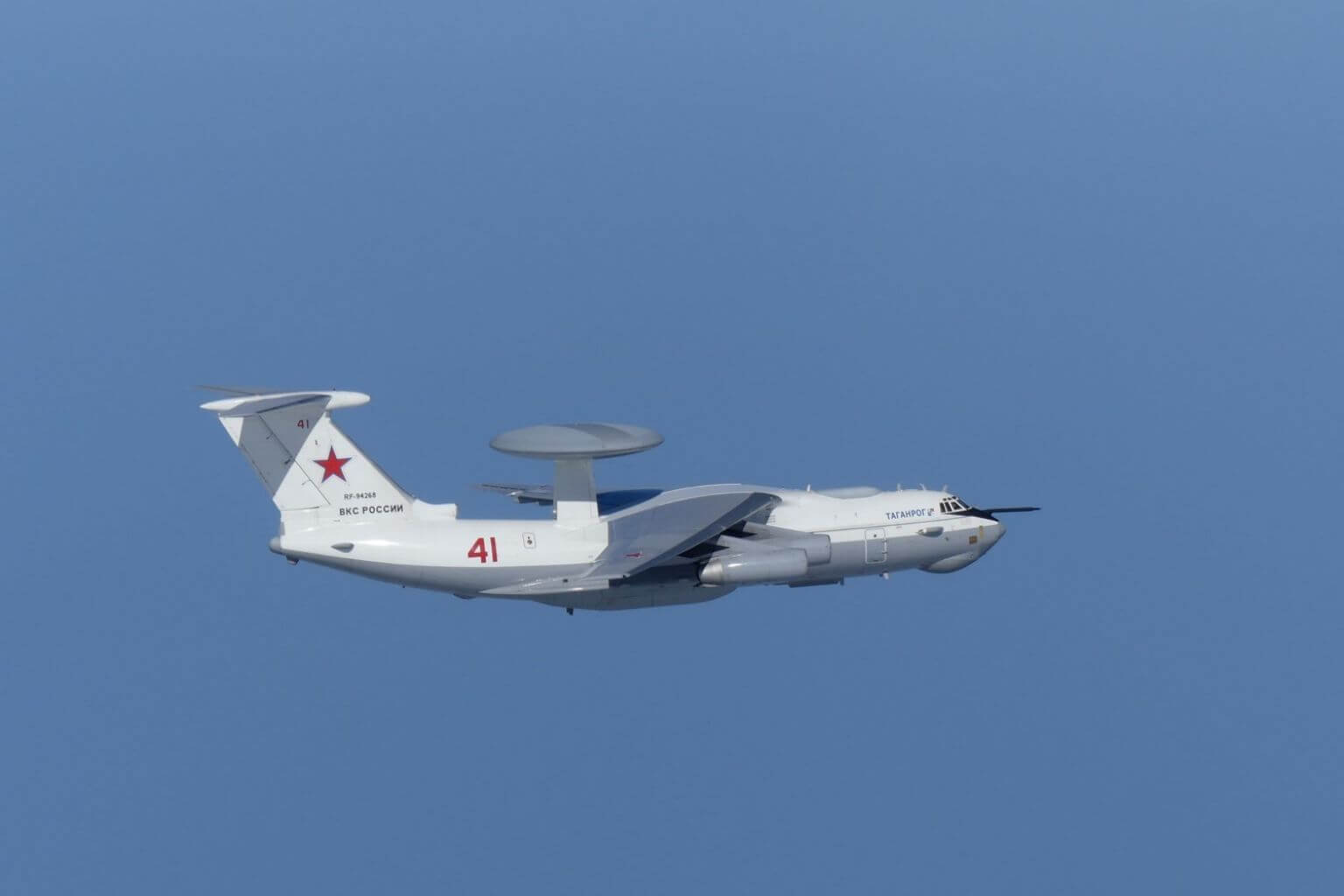Chinese and Russian intrusion a test to Seoul-Washington defence ties: Korea Herald
In its editorial, the paper says that confrontation between Washington's two core Asian allies - Japan and South Korea - could hamper trilateral security cooperation that is necessary to keep the growing military clout of China and Russia in check.
Sign up now: Get insights on Asia's fast-moving developments

A Russian A-50 military aircraft flies near the disputed islands called Takeshima in Japan and Dokdo in South Korea, on July 23, 2019.
PHOTO: REUTERS
Follow topic:
SEOUL (THE KOREA HERALD/ASIA NEWS NETWORK) -The intrusions by Chinese and Russian warplanes into South Korea's air defence zone this week seemed designed to test the robustness of security ties between Seoul, Washington and Tokyo.
On Tuesday, two Russian bombers and two Chinese bombers trespassed Korea Air Defence Identification Zone (KADIZ) without prior notice.
Afterwards, a Russian surveillance aircraft committed what the South Korean Air Force described as an "unprecedented violation of the country's airspace" over the Dokdo islets in the East Sea.
The incursions came amid growing concerns that an escalating spat between Seoul and Tokyo over Japan's wartime forced labour and its recent export curbs against South Korea could damage their security cooperation encouraged by the US.
They were also timed for US national security adviser John Bolton's trip to Seoul and Tokyo, during which he sought to strengthen Washington's three-way security cooperation with its two key Asian allies.
An air defence identification zone is not part of a country's airspace, but a foreign warplane nearing the zone should give prior notification in line with international conventions.
It is not the first time that Chinese and Russian warplanes have violated the KADIZ.
China and Russia, which have forged closer military ties in recent years, have frequently breached the zone under a long-term goal to place the Korean Peninsula and nearby waters under their influence.
The latest incursions that took place during what China and Russia called their joint air drill appeared intended to test the weakening trilateral security cooperation between South Korea, the US and Japan.
The unprecedented intrusion of South Korea's territorial airspace by a Russian military aircraft particularly highlighted Seoul's position as the weakest link in the three-way security scheme.
Russia on Wednesday insisted that its warplane did not violate airspace and the South Korean Air Force rather conducted unprofessional manoeuvres that jeopardised the safety of its crew - a claim flatly rejected by Seoul.
On the same day that Chinese and Russian warplanes made intrusive flights, North Korea's state news agency published undated photos of the recalcitrant regime's leader Kim Jong-un inspecting a newly constructed submarine.
Experts say the submarine, whose operational deployment is close, might be capable of carrying two or three submarine-launched ballistic missiles.
The disclosure of Kim's inspection of the submarine and the North's firing of two short-range missiles Thursday appear aimed at putting pressure on the US ahead of the resumption of working-level talks on dismantling Pyongyang's nuclear arsenal.
Beijing and Moscow have sought to get Pyongyang to side with them in confronting Washington by helping the Kim regime sustain US-led sanctions and probably acquiescing to its status as a nuclear power.
Such daunting security conditions make it all the more necessary for Seoul to strengthen its alliance with the US and, by extension, defence cooperation with Japan.
While South Korea needs to more tightly keep in step with the US in handling the North, Washington should be more active in playing a mediating role between Seoul and Tokyo.
A prolonged confrontation between Washington's two core Asian allies could hamper trilateral security cooperation between them, which is key to countering threats from North Korea and keeping the growing military clout of China and Russia in check.
Seoul has suggested that it could review whether to renew a military intelligence-sharing accord with Tokyo, which is seen as a crucial platform for the three-way security scheme with Washington, if Japan took further retaliatory steps against South Korea.
Seoul needs to be cautious in deciding whether to discard the pact signed with Tokyo in 2016 under the auspices of Washington, but the US should also move to put brakes on Japan's push for expanding economic retaliation over historical disputes.
The intrusive flights by Chinese and Russian warplanes brought home another factor that could stymie the tripartite security collaboration between the US and its two Asian allies - Japan's claim to South Korea's easternmost islets of Dokdo.
After South Korean fighter jets fired warning shots at a Russian surveillance aircraft intruding into the country's airspace, Tokyo issued a protest over the act and renewed its claim to the rocky outcroppings.
South Korea's reaction against Japan's territorial claim seemed more resolute than its response to the incursions by Chinese and Russian warplanes into its air defence zone.
Coordination should be stepped up between Seoul, Tokyo and Washington to prevent China and Russia from using the territorial row to drive a wedge between South Korea and Japan and thus cause a chasm in the US-led alliance network in the region.
In this regard, US Defence Secretary Mark Esper made a proper point on Wednesday that a Russian warplane crossed into South Korean airspace, despite Japan's claim that the incursion breached its own airspace.
The Korea Herald is a member of The Straits Times media partner Asia News Network, an alliance of 24 news media organisations.

